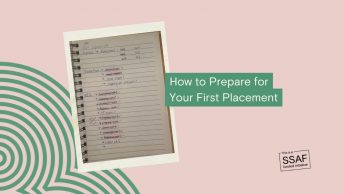This post is over three years old, the information may be outdated.
Written by Billie Tipping
When starting out at university or even if you are moving on to a post-graduate degree, it is easy to fall into the trap of getting overwhelmed and stressed about upcoming assignments and content to learn for exams. It is also easy to fall behind on topics and continuing on this trend for the rest of the session. Here are some tips and tricks to study smarter and not harder.
Finding a routine that works
Whether you are someone who needs to write everything down or you have a routine in your head, it can take some time to learn what works for you in regard to studying and learning throughout the session. It is firstly very important to work out a schedule that encompasses both assignment hours, lecture hours and study hours. Figure out a ratio that best works for your own learning needs. For example, I learn best by writing out all of the content learnt so I spend a lot of time completing this and then working on assignments. You need a schedule that works best for you and your classes and one that’s easy to keep up with so that you don’t fall behind. Some people learn and study better when listening to music, and other’s study better multi-tasking on things, find what works for you and stick to it.
It’s about quality not quantity
When it comes to studying for exams and getting through major assignments, it is really important to not over stretch yourself. Only fit in the amount of study you can, don’t push yourself to overload on content because this is when you are likely to forget main points. Sometimes the content in the textbook and on Interact can be overwhelming and too much for us to take in. It is important to break up these tasks to take in information in small pieces rather than all at once. Exams and assignments are all about the quality you give to them, so don’t exert yourself!

Social/Peer Network
Another handy tip, even if you are studying on campus or online, is to discuss topics and assignments with your fellow peers. This helps to not only alleviate stress on yourself but also to collect information and study in a way that is much quicker. This method allows you to take in more information in a short amount of time, whilst meeting other people and sharing different things that you may have learnt. Often, I find that sometimes I misinterpret content and assignment questions so this is a great way that I organise my study notes but also to have better guidance on assignments.
Study Breaks
As we all know study breaks are very important! I have found that studying for lots of 45 minutes and taking 15-minute breaks can help me to increase my focus. I often get very distracted with my phone during study periods so I also like to turn off my phone or set a timer for myself. There are numerous apps that can be used to limit phone use and distractions. Time blocking in your routine and schedule can be helpful in ensuring you get everything done but also that you take much needed study breaks.
Making Time

The most important study tip is to make time for yourself and for socialising! Studying 24/7 and making sure you know every little bit of detail is not the be all or end all. It is super important to have a balance in your life, making sure to not fall behind on topics but also making sure you are enjoying yourself and making time for other commitments. This will actually allow you to be more thoughtful in your approach to study, will make you feel happier and less stressed, and will the session fly by!










